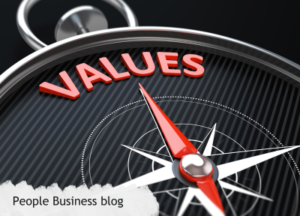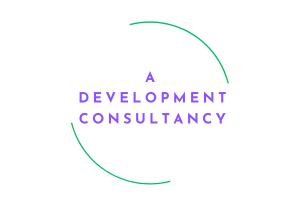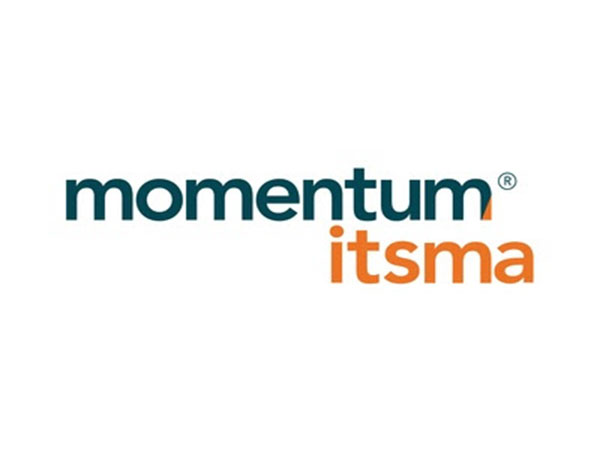What’s in an organisational value?
What does your organisation stand for? What are the important underlying behavioural principles that form the foundation of the culture? What are your organisational values? How do they help you to differentiate and convince people that they should come and work for you?
 It’s incredibly rare to find a large organisation these days that does not have a set of values they purport to live by. The more important question is how people feel about them, and this goes far beyond merely knowing what they are. Successful organisations embed their values into everyday life at the company – their processes and policies go further than making reference to them; they are morally aligned and fundamentally predicated on the beliefs that the values make the company a happier and more successful place to be.
It’s incredibly rare to find a large organisation these days that does not have a set of values they purport to live by. The more important question is how people feel about them, and this goes far beyond merely knowing what they are. Successful organisations embed their values into everyday life at the company – their processes and policies go further than making reference to them; they are morally aligned and fundamentally predicated on the beliefs that the values make the company a happier and more successful place to be.
“Values provide the moral compass which steers you collectively with a common purpose. Increasingly it’s not just what you do as an organisation but how you do it which matters to people,” says Claire Head, Chief People and Culture Officer at Cynergy Bank.*
What do you need to ask yourself about organisational values?
What if you’re just starting to develop your values now? How can you ensure that you’re picking the right ones, and how should you effectively launch and embed them in your organisation? Equally, if you’ve already got them, how do you keep them relevant? Should organisational values change with the times?
Defining your organisational values
Designing values is not something that should be done in isolation by senior colleagues sat around a table. Our consultants at People Business have helped numerous organisations over the years and we know that values can be most effectively launched and embedded when colleagues at every level are involved in creating them.
Defining values is not an HR project – it’s a company-wide exercise.
Here are some steps to get your organisation started:
- Kick off with a survey: basic surveys can be used to garner opinions from colleaguesIn our experience, asking colleagues how closely various values and beliefs reflect the day-to-day lived experience of working in the organisation gives you a great starting point.
- Selecting the right questions: you can either use a Likert approach (How much do you agree that ‘VALUE’ is at the core of what we do?’, with forced scoring) or a dichotomous approach (Which of these values do you think are most closely aligned, A or B?’). The latter is certainly more labour intensive but can give you a more considered view of what is really important to people.
- Identify ten themes: once you have your list, correlate the data and identify ten themes. You can then run focus groups, ensuring that you include a representative cross section of the employee base, to find the ones that resonate the best.
- Find your key organisation values: ideally, these focus groups should cut the list down to a five-value short list, which then is further honed to create a final value set of three or four. This ensures they are easy to remember and embed in organisational language and processes.
Paying more than just lip service
Any company can stick their values on a wall and create some logos. The value comes when they are truly aligned into the organisational ethos and people processes. The language should be used wherever possible to embed the sentiment in everyday transactions, at every level.
Here are some ideas to get you thinking:
- Align meeting points: it can sometimes feel a bit artificial to have an agenda item that says, ‘tell me about a time you’ve seen the values lived this month’ (although this can be helpful to start getting them embedded at the beginning of the journey. But, always being mindful of the values and aligning specific deliverables against them can help teams to ensure they are driving the right behaviours and doing the right things. A quick mapping activity can emphasise how objectives line up with the greater organisational purpose.
- Think about your ‘why’, and ensure it ties in with your new values: Simon Sinek talks a lot about how successful organisations Start with Why – establishing their core purpose for existing. Many companies think about What they do and go no further… they offer a particular solution and don’t really care about how it gets done, or why it’s important. It’s an extra step, but if you’re designing your values it makes sense to think about purpose at the same time, then ensure the values help you to get there.
- Tie the values in with key people processes: a good set of values can be tied into every people process – performance management and growth conversations, awards ceremonies, learning programmes, engagement surveys… this is just the start. Incentivise people to live up to the values they have defined and celebrate it publicly when they get it right.
- Conduct regular check-ins: more organisations are moving away from the restrictions of annual engagement surveys and towards pulse surveys which constantly gather small pieces of information in the moment. This allows you to manage the feedback and, with the introduction of AI, take actions on priority areas immediately. Micro-feedback gathering also has the potential to achieve higher uptake, as the effort to complete is less and spread over the entirety of the annual cycle. Embedding values into these questions will help to entrench the language.
- Use peer-to-peer praise aligned to the values: again, there is a definite shift away from reward and praise being a ‘top down’ mechanism – P2P praise through global systems is becoming mainstream.
Keeping your organisational values valuable
Just because they were the right values once doesn’t mean they always will be. Company priorities change and that can affect the values of the people employed there. It’s important to measure not just if employees think you are living your values, but whether or not they align with what is now important. If they don’t, change them!
If your organisation is embarking on an values project and requires assistance or simply a different perspective get in touch to talk to one of our consultants.
*an extract from an interview commissioned by People Business




